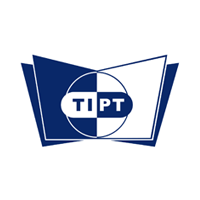 Pharmaceutical regulatory affairs professionals play a vital role in developing and filing the necessary documentation to get approval for new drugs and products. However, they must also be able to advise colleagues about any regulatory challenges which could have an impact on the company’s latest projects. Since many Canadian pharmaceutical companies also operate in the USA, professionals in the industry must keep the regulations of both countries in mind.
Pharmaceutical regulatory affairs professionals play a vital role in developing and filing the necessary documentation to get approval for new drugs and products. However, they must also be able to advise colleagues about any regulatory challenges which could have an impact on the company’s latest projects. Since many Canadian pharmaceutical companies also operate in the USA, professionals in the industry must keep the regulations of both countries in mind.
The Therapeutic Products Directorate (TPD) at Health Canada sets the standard for Canada’s regulations, while the US Food & Drug Administration (US FDA) carries out the same role across the border. It’s vital for students to recognize the mandate which both of these organizations have been given by their national governments. Regulations are often very similar in both countries, but subtle differences could have a significant impact on your company’s production. Read on to learn about both organizations in more thorough detail.
The Responsibility Held by Health Canada in Pharmaceutical Regulation
Health Canada is the state department which deals directly with matters relating to the country’s public health. One of the many different branches in the department is the Therapeutic Products Directorate (TPD), which is the regulator of prescription drugs and medical devices for human use.
The TPD reviews scientific information to assess the safety, efficacy, and quality of a product. It also reviews clinical trials to ensure they are carried out to a high standard, and provides science-based medical information to the general public. These responsibilities are delegated to 12 different bureaus and offices, including the Bureau of Cardiology, Allergy & Neurological Sciences, and the Bureau of Policy, Science & International Programs.

Health Canada (TPD) work is carried out within the country’s Food and Drugs Act and Regulations, and top regulatory affairs courses ensure that graduates have a deep knowledge of these laws before heading into the workplace.
Pharmaceutical Courses Should Also Build Awareness About the US FDA
The United States Food & Drug Administration has a more expanded remit than TPD in Canada. As well as ensuring the safety, efficacy and security of human and veterinary drugs, biological products, and medical devices, it also regulates food supply and cosmetics.
The laws enforced by the FDA have evolved since the Food and Drugs Act of 1906, and the organization boasts one of the world’s most comprehensive and effective networks of public health and consumer protections. The FDA doesn’t approve certain products such as compounded drugs, tobacco, medical foods, or infant formula, but do apply some level of regulatory oversight in these areas.
Regulatory affairs diploma graduates can often end up working in the development of medical devices, and it’s important to note the FDA’s tiered approach to regulation in this area. High-risk devices, such as mechanical heart valves, usually need FDA approval before going to market, while low risk products such as exam gloves are only subject to general controls.
How Will the TPD & FDA Affect the Work of a Regulatory Affairs Professional?
The regulatory affairs professional is an integral part of the structure of a pharmaceutical company, and they must provide advice throughout the drug development, manufacturing, and marketing stages. Should they spot an issue early in the process which would cause a product not to meet national or international regulations, the company can redevelop it, thus saving money.

In many cases, they must also liaise directly with regulatory bodies such as the TPD & FDA, so being familiar with both is crucial. A wider knowledge about regulation and law in Europe, Australia, Japan, and elsewhere would also be of benefit to the employee and employer.
Pharmaceutical courses can get you started in an industry with great job prospects.
Check out what Toronto Institute of Pharmaceutical Technology can offer.
